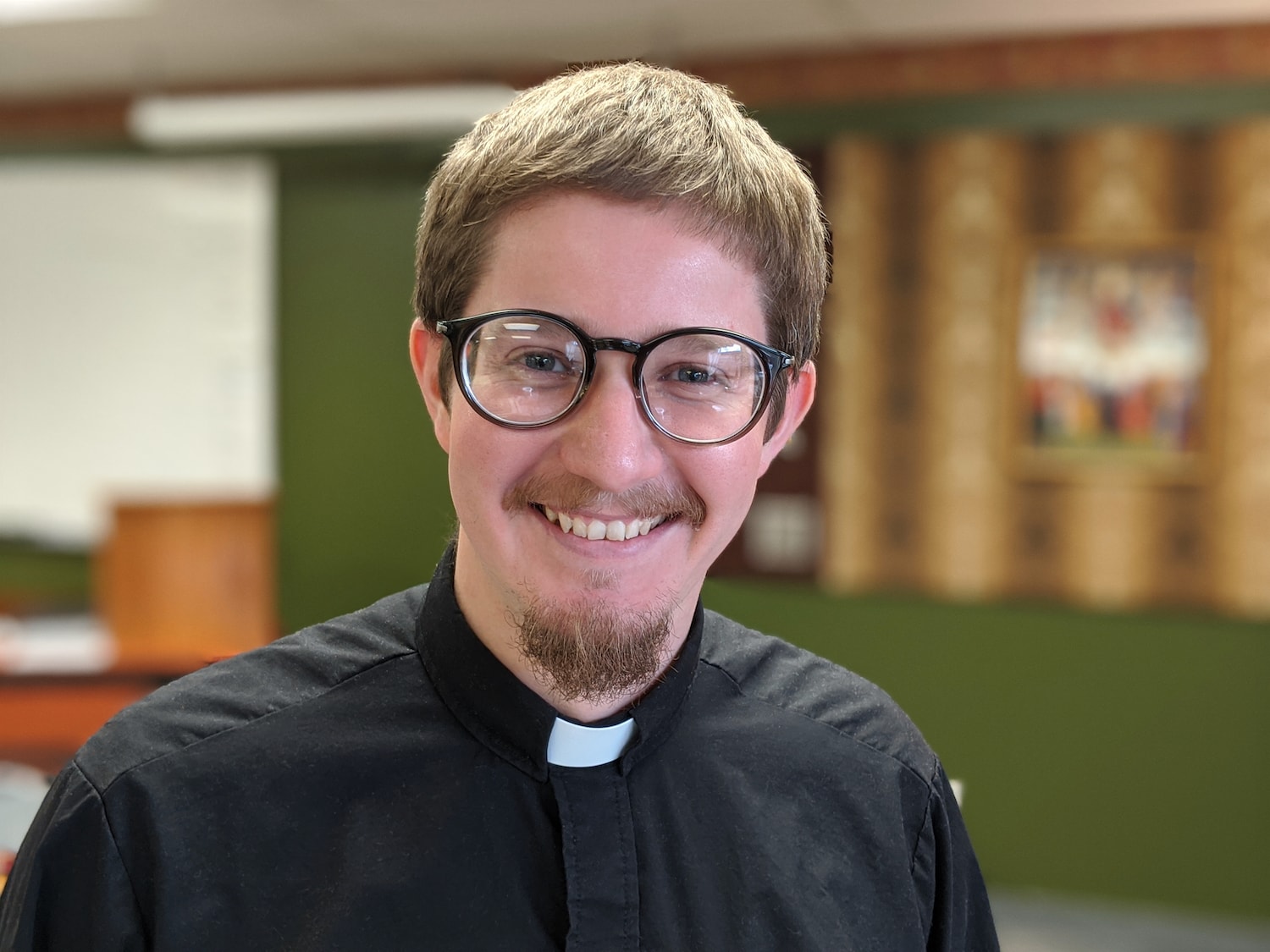Today we celebrate the 505th anniversary of the Reformation. On October 31st, 1517 Martin Luther, a German professor at the University of Wittenberg, posted 95 Theses for debate on the topic of repentance, and he also sent a copy of the theses to his bishop. This ultimately led to the preservation of the Gospel and sound doctrine (no thanks to Luther’s bishop), even though the Roman Catholic Church would not bring itself back in line with the truth of God’s Word. Luther was not looking to create a schism in the Church, and in truth he didn’t. He taught the truth according to the Word of God, and the papacy wouldn’t follow that Word. Jesus says of Himself in John 10, “the sheep follow Him, for they know His voice” (Jn. 10:4). Many people in Germany in the 16th century did heed Christ’s voice of the pure Gospel and believed it. The Roman Catholic Church, however, fought the spread of the Gospel and even resorted to killing people who wouldn’t renounce sound doctrine.
On July 1, 1523, the papacy burned two Augustinian monks at the stake who wouldn’t believe the official papal doctrine but instead believed the true Gospel that Luther and other reformers were preaching from the Scriptures. These monks were named Heinrich Voes and Johann Esch. They said, “We will die as Christians and for the truth of the Gospel.” As they were burning, they sang the Te Deum (“We praise You, O God, we acknowledge You to be the Lord…”), which the students at Mount Hope also sing in the Matins service. Martin Luther heard about the monks and wrote the following hymn in commemoration of their martyrdom. You can listen to it at this link (though it is a different translation). You can also find a printable PDF of the words and music at this link.
A new song be by us begun,
God help us tell the story,
To sing what our Lord God hath done
Unto His praise and glory.
At Brussels in the Netherlands
Hath He made known His wonders
Through two mere boys, right youthful lads,
Whom He with heav’nly treasures
So richly hath adornèd.
The first right fitly John was named,
So rich he in God’s favor;
A Christian true and free from blame
Was Henry, his dear brother.
Out from this world they both have trod;
Their heav’nly crowns they cherished;
Like any pious child of God,
For His Word have they perished.
His martyrs they have become.
The ancient Foe did have them bound,
With terrors to enwrap them;
When to God’s Word they true were found,
He sought by craft to trap them.
From Louvain many Sophists came,
With their accursèd learning,
By Satan gathered to the game;
But God, the tables turning,
Denied them all victory.
Well, they sang sweet and they sang sour,
Crafts of all kinds devising;
The youths stood steadfast as a tow’r,
The Sophists’ pow’r despising.
The ancient Foe was filled with hate
To be thus overtaken
By such young men, and he so great;
His wrath did then awaken,
And he resolved to burn them.
They stripped them of their monkish garb,
Their priestly vestments taking;
The youths for this were well prepared,
A joyful “Amen!” speaking.
To God their Father gave they thanks,
For He at last had freed them
From all the devil’s masks and pranks
Wherewith he’d fain mislead them,
Deceiving thus all the world.
So by God’s grace it came to pass
That they true priests were rendered.
Themselves they offered at the last,
And Christ’s own priesthood entered.
Unto the world they died indeed,
Hypocrisy renouncing,
And came to heaven, pure and free,
All monkish ways denouncing,
Forsaking all men’s trifles.
A statement for the youths they wrote
And bade them read it over;
They did therein their doctrine note,
Their errors to uncover.
Their greatest fault was to proclaim:
“We ought to trust God solely,
For men are naught but liars vain;
We should distrust them wholly.”
For this they must both be burned!
Two roaring fires they kindled then;
The youths they brought unto them;
But wonder seized on all the men,
For fear could not undo them.
With joy they gave themselves to death,
With songs to God and praises;
The Sophists’ courage waned and fled,
For God, who new things raises,
A wonder had now prepared.
They rue it now, and feel their blame
And fain would gloss it over.
They dare not glory in their shame,
The tale they seek to cover.
They feel their crime within their breast
And for their part deplore it,
But now the Spirit cannot rest,
For Abel’s blood outpourèd
Must evermore Cain accuse.
Their ashes ne’er will cease to swell;
They fly to ev’ry nation.
No stream, hole, ditch, or grave can quell
Or hide th’ abomination.
He who did seek with murd’rous hand
To silence them while living
Now in their death through ev’ry land
Must hear men praises giving
And singing right joyfully.
From lies to lies they still proceed,
And feign forthwith a story
To color o’er the murd’rous deed;
Their conscience pricks them sorely.
Those saints of God e’en after death
They’ve slandered, and asserted
The youths had with their dying breath
Confessed and been converted,
Their heresy renouncing.
Well, let them lie forevermore;
No favor they’ll be earning.
We’ll ever thank our God therefore:
His Word is now returning.
The summer is hard by the door,
And winter starts to shun it,
The tender flow’rs now bloom once more,
And He who hath begun it
Will surely complete His work.
On this day we give thanks to God for preserving sound doctrine by His Word. The Gospel is our most valuable treasure, and we would gladly lose our lives for it because of the hope we have in Christ.
In Christ,
Pastor Richard

